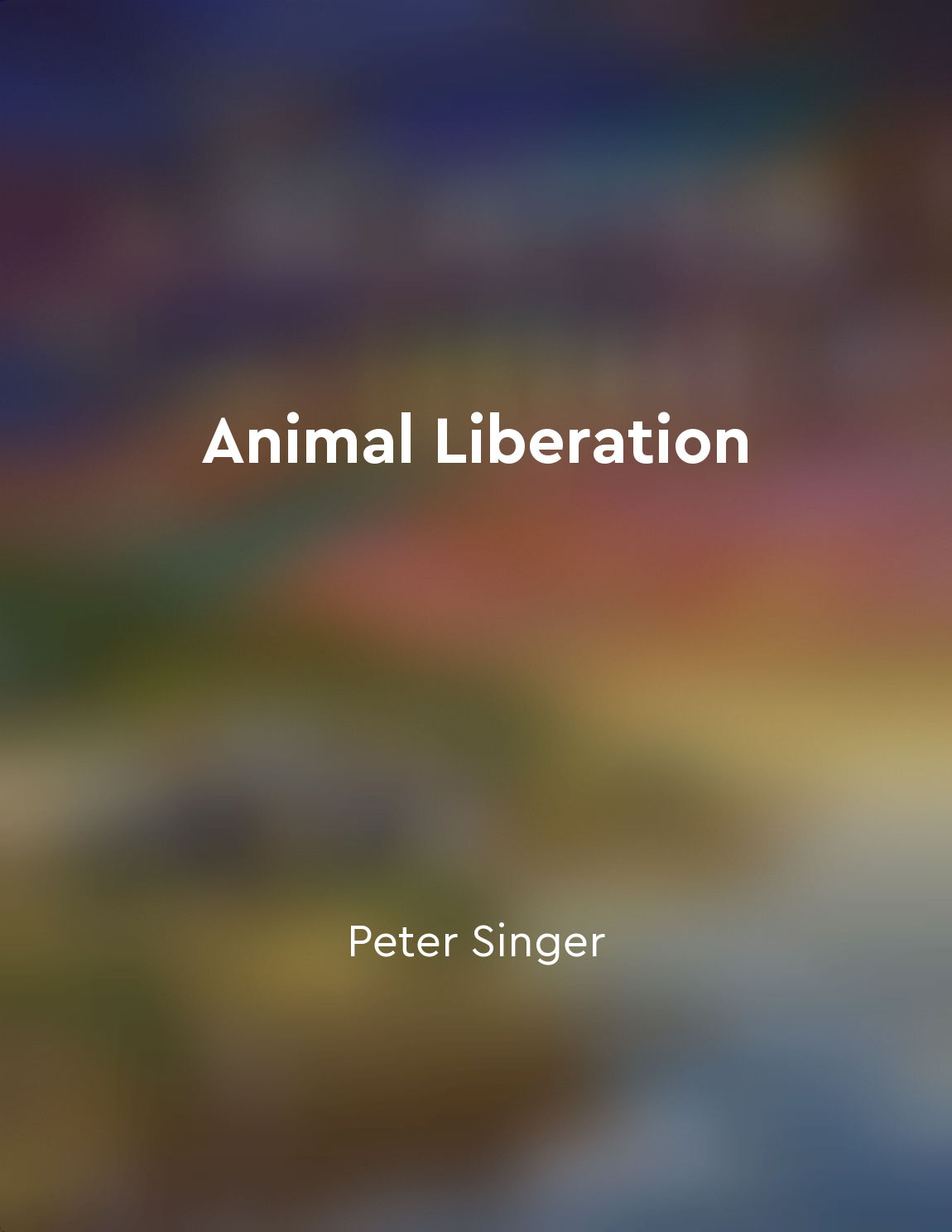A shift towards plantbased diets challenges oppressive systems from "summary" of The Sexual Politics of Meat (20th Anniversary Edition) by Carol J. Adams
The idea that shifting towards plant-based diets can challenge oppressive systems is rooted in the recognition that our food choices are not just personal preferences but are deeply intertwined with larger social structures. By choosing to consume plant-based foods, individuals are not only making a statement about their personal health and environmental impact, but are also challenging the dominant systems of power that perpetuate exploitation and violence. Plant-based diets disrupt the traditional hierarchy that places certain animals, particularly cows, pigs, and chickens, at the bottom of the food chain, where they are objectified, commodified, and ultimately consumed. This hierarchy mirrors other oppressive systems, such as patriarchy and white supremacy, where certain groups are marginalized and exploited for the benefit of others. By rejecting the consumption of animal products, individuals are rejecting this hierarchical structure and the violence it perpetuates. Furthermore, the production of meat and animal products is deeply connected to environmental degradation, as well as labor exploitation. The meat industry is one of the largest contributors to greenhouse gas emissions and deforestation, leading to climate change and habitat destruction. Additionally, workers in slaughterhouses and factory farms often face dangerous working conditions, low wages, and little job security. By choosing plant-based foods, individuals are not only reducing their environmental impact but also standing in solidarity with these marginalized workers. In challenging oppressive systems, plant-based diets also open up possibilities for more compassionate and sustainable ways of living. By centering plants and plant-based sources of protein in our diets, we can cultivate a greater sense of empathy and connection with other living beings, as well as with the planet as a whole. This shift towards plant-based diets is not just about what we eat, but about how we envision our relationship to the world around us and the values we want to uphold.- Shifting towards plant-based diets is a radical act of resistance against the status quo, challenging dominant narratives about food, power, and sustainability. It is a way of reclaiming agency over our bodies and our choices, while also envisioning a more just and equitable future for all beings. In this way, plant-based diets have the potential to disrupt oppressive systems and pave the way for a more compassionate and interconnected world.
Similar Posts

Food is political
When we sit down to eat, we are making a choice. We are choosing what to put into our bodies, what to support with our dollars,...
Social support can enhance motivation and accountability
Having a strong social support system can be the key to success when it comes to making positive changes in your life, such as ...

Compassion towards animals is a sign of moral progress
Compassion towards animals is a sign of moral progress. This statement may seem obvious, but the reality is that many people st...

Seek support if needed
If you find yourself struggling to make changes to your diet, remember that seeking support from others can be incredibly helpf...
The meat industry profits off the objectification of animals and women
The meat industry profits off the objectification of animals and women by reducing living beings to mere objects to be consumed...
Urban agriculture offers solutions to modern challenges
Urban agriculture is not just about growing food in cities; it is about addressing the pressing challenges of our modern world....
Cultivating resilience through local food production prepares communities for challenges
Cultivating resilience through local food production is a fundamental way to empower communities to face challenges. By growing...
We must learn from Indigenous approaches to ecological sustainability
The wisdom of Indigenous peoples holds the key to our survival on this Earth. For generations, Indigenous communities have live...

